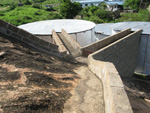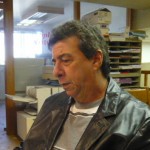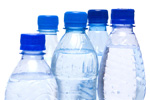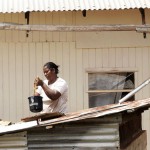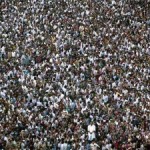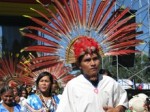Caracol Haiti Industrial Park With Projected Adverse Environmental Impact | Caracol, un parc industriel d’Haïti Parc qui aurait un impact environnemental négatif
By Staff, Haiti Grassroots Watch. Part 6 of 7. The same week over 300 agricultural plots in Caracol, Haiti, were unexpectedly destroyed, the Haitian government signed an agreement with US Secretary of State Hillary Clinton, IDB, and Korean textile giant Sae-A Trading to convert the lands into an industrial park. This park will dump its wastes into a bay with extensive coraf reefs and one of the country’s last mangrove forests. (English | French)


